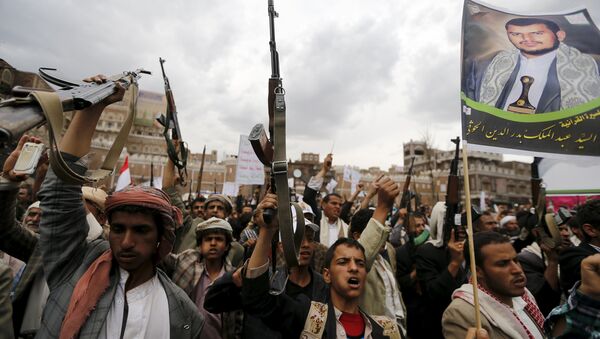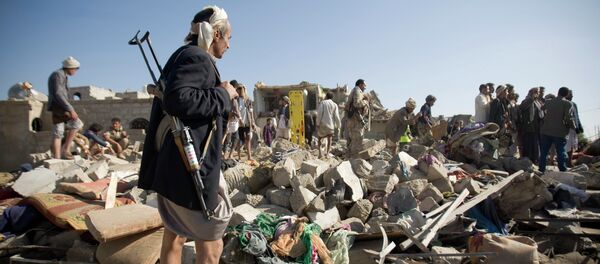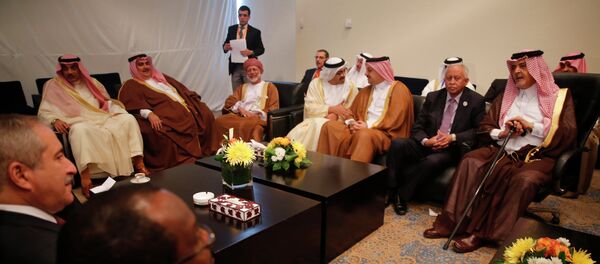The United States supports Saudi Arabia's actions and is providing intelligence and logistical support.
In January 2010 President Yanukovych of Ukraine was elected President of the country in a closely fought election declared democratic by the Western powers. In February 2014 he was overthrown in an unconstitutional coup spearheaded by Ukraine's western minority. In the same month he fled to Crimea where he declared his overthrow illegal and called on Russia to restore him to power. Russia declined to do so but rescued him and brought him to Russia instead.
The United States vigorously denounces Russia's actions, accusing Russia of engaging in an armed intervention in Ukraine — which is not actually taking place — and has imposed sanctions upon Russia, branding the country a threat to world peace.
An uninformed observer might find it strange that the United States supports the Saudis for doing in Yemen what it denounces the Russians for doing in Ukraine. The same uninformed observer might be even more puzzled on realising that the Russians are not actually doing what the United States denounces them for doing in Ukraine, but which the Saudis actually are doing in Yemen.
Those of us better informed about the world know however that this is how the United States always behaves.
Russian foreign minister Sergei Lavrov calls this a double standard. He is wrong. As Noam Chomsky (the US political activist who is also a prominent linguist) pointed out long ago what Lavrov calls a double standard is actually a single standard: the United States does not consider itself (or its allies) subject to rules of behaviour that apply to everyone else. The United States is always gravely offended when others say otherwise. The "exceptional country" is not subject to rules. It is lese-majeste when "lesser countries" say it is.
No principle of democracy or of constitutional order is at stake in this conflict. The degree to which President Hadi has a better claim to govern Yemen than the Houthis is open to doubt. His election hardly qualifies as "democratic" and the previous regime of which he was for many years part has been called a "kleptocracy" The Houthis passionately oppose Al-Qaeda and the Islamic State, the two violent jihadist groups the United States is in conflict with, which have been making dangerous inroads in Yemen. On the face of it they appear to be natural allies of the United States, not enemies.
The Saudi intervention in Yemen, which the United States supports, is in reality simply a function of Saudi Arabia's longstanding conflict with Iran and of the age old sectarian conflict between the Sunni and the Shia within Islam. Since the Houthis in Yemen are Shia the Saudis treat them as proxies of Iran, though whether they really are that is open to doubt given that they practise a different variant of Shiism to that followed in Iran.
It seems incredible that the United States should involve itself so casually in a millennial sectarian religious conflict it barely understands, tearing up international law in the process.




